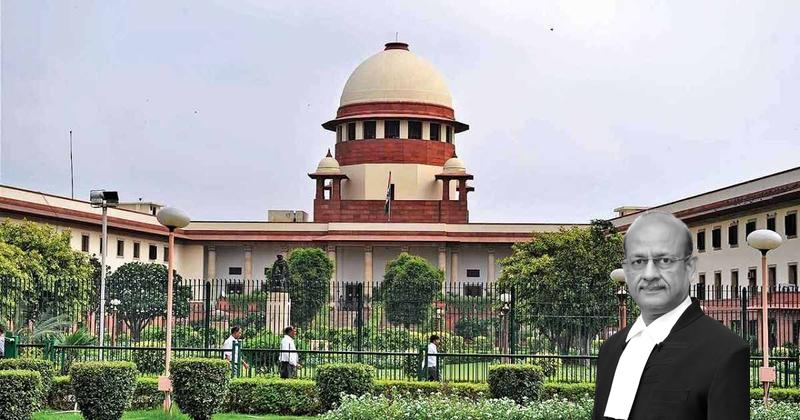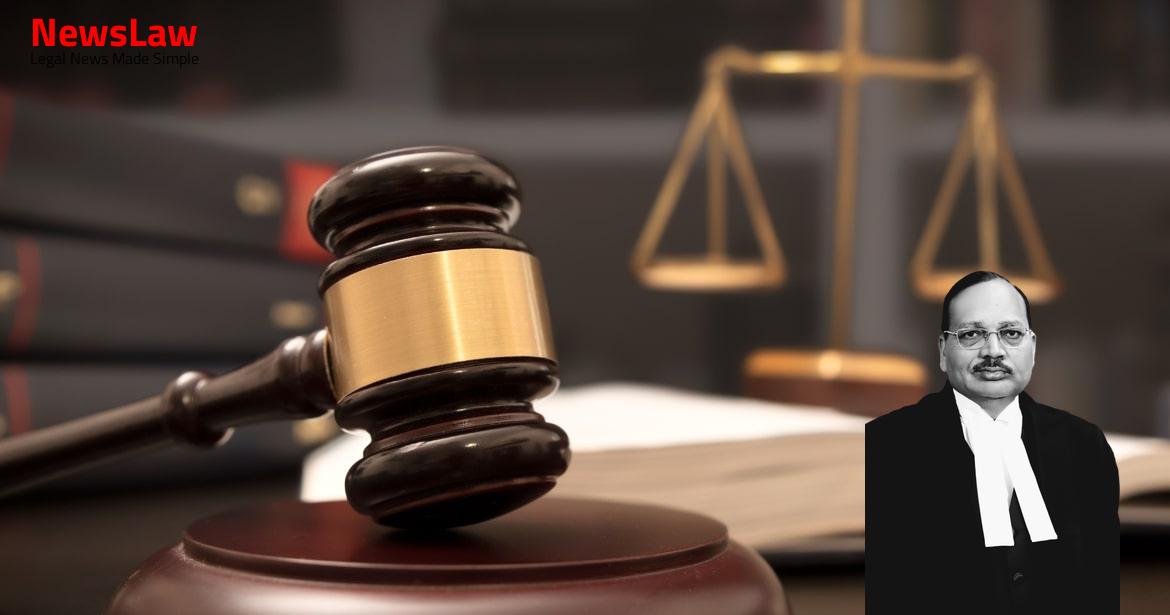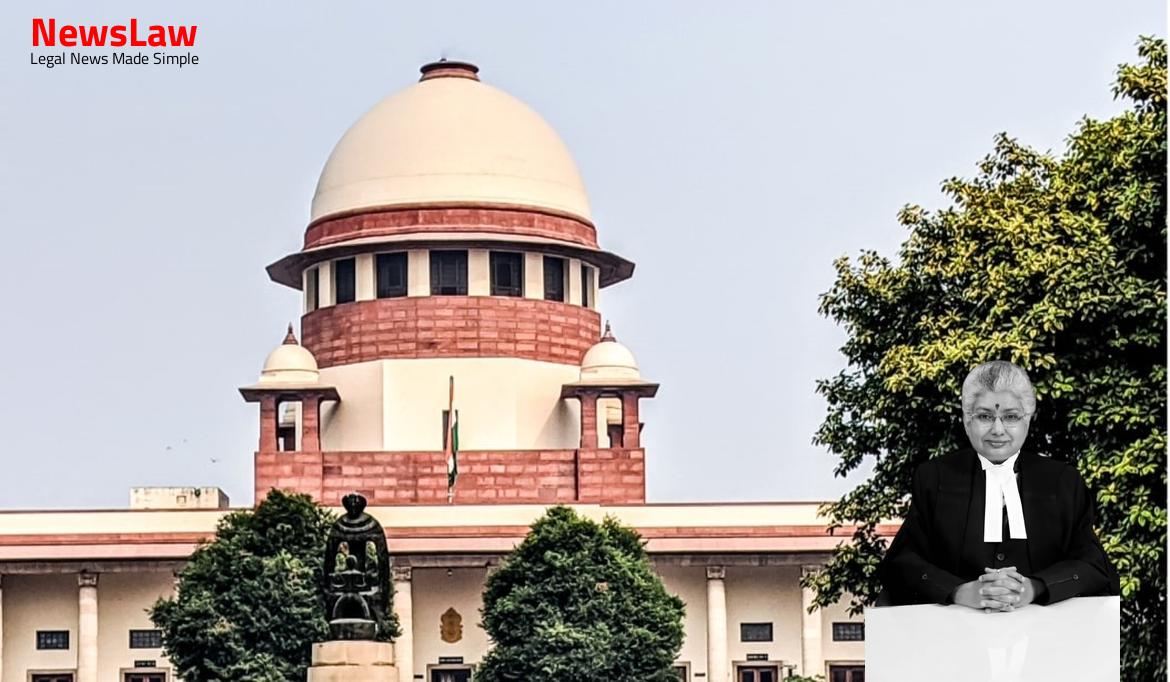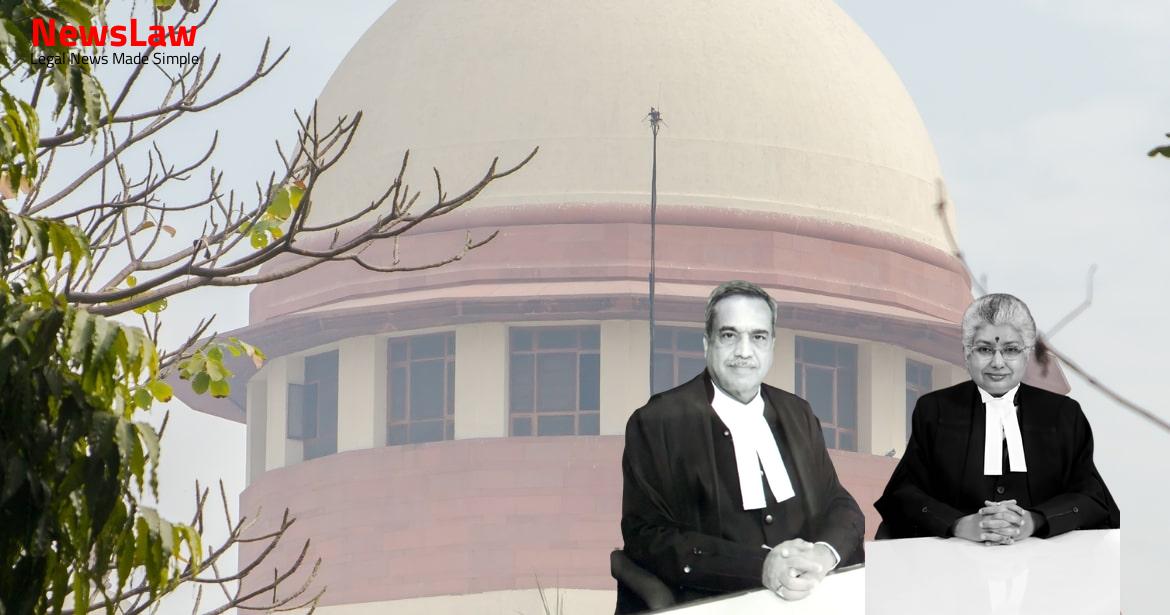The allegation of the prosecution is that on 01 October 1995 at about 03:30 pm, the accused entered the house of PW-3 Jawahar Lal where he, along with his family members, were residing. We may note that admittedly the only allegation against the present appellant (accused no.2) is that while 6 other accused entered the house of PW-3, the appellant was standing near the gate of the gallery with katta (country-made handgun) in his hand. He submitted that as a result of the failure of the Trial Court to put the only circumstance appearing against the appellant during his examination under Section 313 of CrPC, grave prejudice has been caused to the appellant resulting in failure of justice. He submitted that the very fact that the said objection was not raised at any time earlier shows that there is no prejudice caused to the appellant due to the failure of the Court to put the only circumstance against the appellant to him while recording his statement under Section 313, CrPC.
There is no dispute that the only allegation against the appellant was that while six accused entered the house of PW-3, the appellant was standing outside with a katta in his hand. Hence, the only circumstance brought on record against the present appellant is in the evidence of PW-5, who stated that the appellant was standing outside near the gate of the gallery with a katta in his hand.
We may note here that in paragraph 13 of the written submissions by the appellant before the High Court, a specific contention was raised that the only circumstance appearing against the appellant was not put to him in the statement under Section 313 of CrPC. We may also note that the Trial Court has not reproduced the submissions made by the learned counsel appearing for the accused.
It is important therefore that an accused should be properly examined under Section 342 and, as their Lordships of the Privy Council indicated in Dwarkanath Varma v. No it is evident that when the Sessions Court is required to make the examination under this section, the evidence referred to is the evidence in the Sessions Court and the circumstances which appear against the accused in that court. In paragraph 16 of the decision, this Court examined the issue of non-compliance with the requirements of Section 342 of CrPC of 1898.
When the second accused was asked under Section 342, CrPC about the report of the chemical examiner noticing blood stains on the shirt, MO 5/2 and of human blood on the blade of the knife, MO 5/1, he merely answered, “I do not know”. Bald denial notwithstanding, we are inclined to believe, with the learned Judges of the High Court, that the knife and the shirt have been identified as his and since he had recovered them, thereby making the police discover the fact, there was inference available against the said accused. It is also open to the appellate court to call upon the counsel for the accused to show what explanation the accused has as regards the circumstances established against him but not put to him and if the accused is unable to offer the appellate court any plausible or reasonable explanation of such circumstances, the Court may assume that no acceptable answer exists and that even if the accused had been questioned at the proper time in the trial court he would not have been able to furnish any good ground to get out of the circumstances on which the trial court had relied for its conviction. In the present case, however, the High Court, though not the trial court has relied upon the presence of blood on the pants of the blood group of the deceased.
Section 342 of the Code of Criminal Procedure, 1898, casts a duty on the court to put, at any enquiry or trial, questions to the accused for the purpose of enabling him to explain any circumstances appearing in the evidence against him. Apart from the judgments referred to aforesaid by the learned Senior Counsel, we may usefully refer to the judgment of this Court in Asraf Ali v. Section 313 of the Code casts a duty on the court to put in an enquiry or trial questions to the accused for the purpose of enabling him to explain any of the circumstances appearing in the evidence against him. State of Maharashtra, (1973) 2 SCC 793 : 1973 SCC (Cri) 1033], which considered the fallout of the omission to put to the accused a question on a vital circumstance appearing against him in the prosecution evidence, and the requirement that the accused’s attention should be drawn to every inculpatory material so as to enable him to explain it. Learned counsel for the respondent also relied upon a decision of this Court in the case of Vahitha v. Moreover, what is binding is the decision of the larger Bench in the case of Shivaji Sahabrao Bobade which lays down that if there is prejudice caused to the accused resulting in failure of justice, the trial will vitiate.
The material circumstance means the circumstance or the material on the basis of which the prosecution is seeking his conviction; (ii) The object of examination of the accused under Section 313 is to enable the accused to explain any circumstance appearing against him in the evidence; (iii) The Court must ordinarily eschew material circumstances not put to the accused from consideration while dealing with the case of the particular accused; (iv) The failure to put material circumstances to the accused amounts to a serious irregularity. The charge framed against all the accused by the order dated 4 July 1998 by the trial Court was as under : (i) That on or before 1 October 1995 at around 3.30 pm at Delhi A-1 to A-6 along with Vimal (since dead) agreed to criminally intimidate and commit the murder of Jawahar Lal (PW-3) and his relatives on account of the failure of PW-3 to stop his TV cable network in the area of Paschimpuri thereby committing the offence of criminal conspiracy punishable under Section 120B IPC.
(iii) All of them pursuant to the criminal conspiracy attempted to commit the murder of PW-3 by firing bullets from their revolvers on both PW-3 and PW-7 due to which both of them received dangerous injuries and thereby all of them committed an offence punishable under Section 307 read with 120B IPC.’
Also Read: https://newslaw.in/case-type/criminal/legal-analysis-of-judgement-on-discharge-in-a-murder-case/
(emphasis added) 18.
Only based on the version of PW-5 regarding the appellant’s presence with a weapon outside the premises where the offence took place, the involvement of the appellant has been held as proved. Considering the passage of time, we are of the view that it will be unjust now at this stage to remit the case to the Trial Court for recording further statement of the appellant under Section 313 of CrPC. Before we part with this judgment, we must take a note of sub-section (5) added to Section 313 of CrPC w.e.f. The Court may take help of Prosecutor and Defence Counsel in preparing relevant questions which are to be put to the accused and the Court may permit filing of written statement by the accused as sufficient compliance of this section.” In many criminal trials, a large number of witnesses are examined, and evidence is voluminous.
Therefore, when the Trial Judge prepares questions to be put to the accused under Section 313, before putting the questions to the accused, the Judge can always provide copies of the said questions to the learned Public Prosecutor as well as the learned defence Counsel and seek their assistance for ensuring that every relevant material circumstance appearing against the accused is put to him.
Also Read: https://newslaw.in/case-type/criminal/protection-of-public-servants-in-criminal-proceedings/
Accordingly, we allow the appeal and set aside the conviction and sentence of the appellant under the Judgment and Order dated 27 August 2003 passed by the learned Additional Sessions Judge, Delhi, in Sessions Case No.9 of 2000. We make it clear that both judgments are set aside only insofar as the appellant is concerned.
Case Title: RAJ KUMAR @ SUMAN Vs. STATE (NCT OF DELHI) (2023 INSC 520)
Case Number: Crl.A. No.-001471-001471 / 2023



